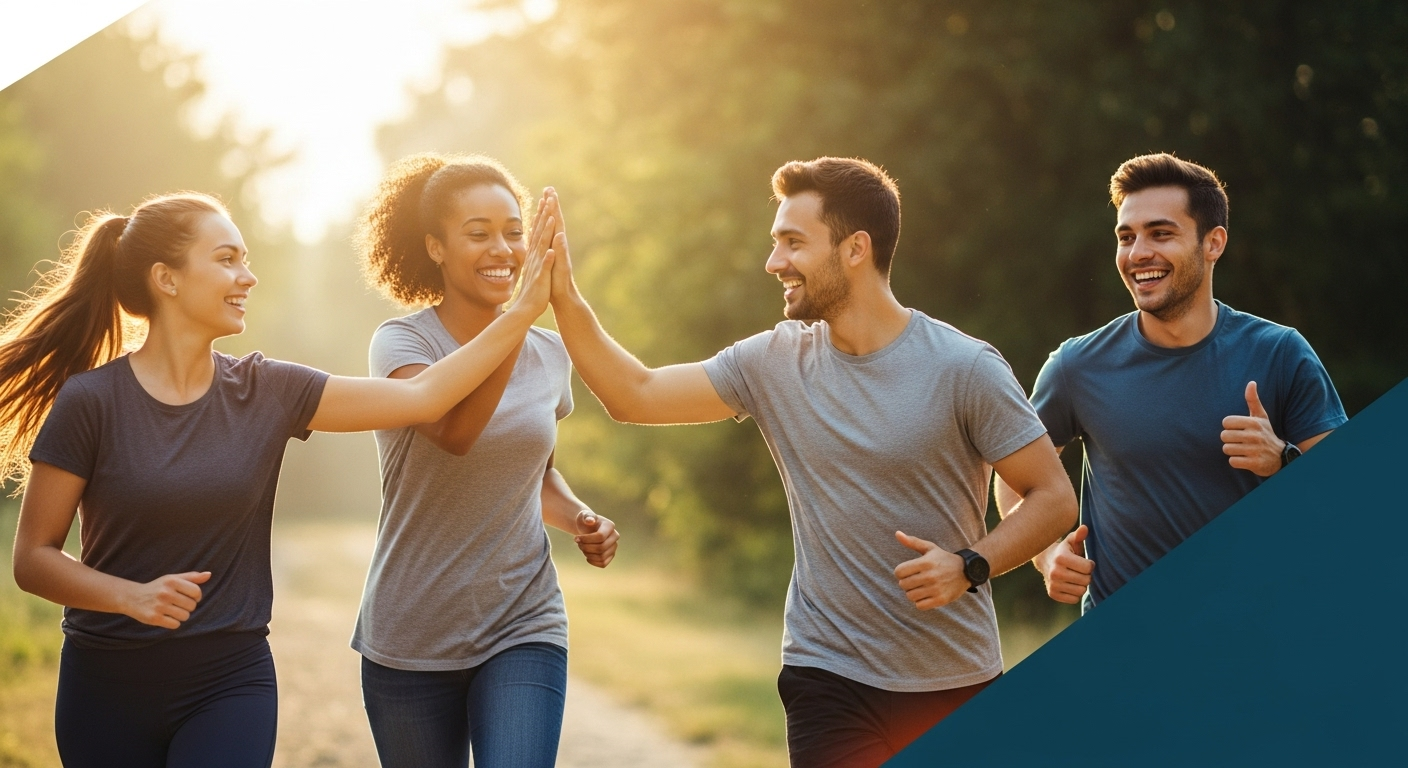Teamwork Matters: How Your Actions Shape Physical Activity Experiences
Peer reviewed by Dr. Peter Rawlek, MD & Scott Rollo, PhD
The energy and attitude of the people around you can completely change how you experience a game or workout. Whether it’s a basketball match, a run with friends, or a dance practice, the way everyone acts shapes whether the activity feels exciting and welcoming… or uncomfortable and discouraging.
Why Our Actions Matter
When we participate in games and activities, we’re not just moving - we’re learning important skills like teamwork, communication, and respect. Positive behavior builds confidence, enhances enjoyment, and motivates you to stay active over time. Negative behaviors, such as ignoring teammates or excluding others, can leave people feeling isolated or unsafe, making them less likely to participate.
Think about a time when you or someone else was picked last or left out during a game. Those feelings can stick with you and affect your willingness to join in next time.
The Power of Peer Involvement and Role Models
Who you’re active with makes a difference. Friends, classmates, coaches, and family members all influence your experience:
Peers: Exercising or playing sports with friends often makes activities more fun and encourages you to keep going.
Role Models: Positive coaches or teachers who celebrate effort—not just skill—can boost your confidence.
Family and Culture: If your family values staying active or your community has cultural traditions involving movement (like traditional dance), you’re more likely to include activity in your life.
Consider who makes being active enjoyable for you, and how their support helps.
How Groups Create Positive Experiences
In group activities, every member’s actions count. Here’s how you can help make physical activity better for everyone:
Positive reinforcement: Recognize and praise good effort, even if someone makes a mistake.
Encouragement: Cheer each other on during difficult drills or tough games.
Compromise: When picking teams, aim to keep things fair and fun.
Respect: Listen to others’ ideas and feelings, especially when planning or resolving conflicts.
When people feel supported and acknowledged, they’re more likely to enjoy the activity and want to participate again.
The Impact of Exclusion
Excluding someone from games or activities—intentionally or not—can harm their sense of belonging and confidence. Feeling nervous or unsafe can also make it harder for someone to focus and perform well.
Reflect: Have you ever felt left out or seen someone else excluded? What could you do differently next time to ensure everyone feels included?
Your Role in Shaping Experiences
You have the power to create positive physical activity experiences for yourself and others. Next time you’re in a game or activity, try:
Inviting someone new to join.
High-fiving a teammate for their effort.
Being open to switching teams or adjusting rules to be fairer.
Bottom line: Physical activity is about more than just moving, it’s about connecting. Supporting each other, staying positive, and including everyone creates experiences people look forward to.
Lesson Prompts and Discussion Questions
The Impact of Your Actions
Prompt: Your behavior doesn’t just affect you, it affects the whole group. Reflect on a time when your actions either helped build a stronger team or caused challenges within a group. What did you learn from that experience?
Discussion Question: How can becoming more aware of the way you impact others improve your relationships and teamwork both in sports and in everyday life? What steps can you take to make a positive difference?

